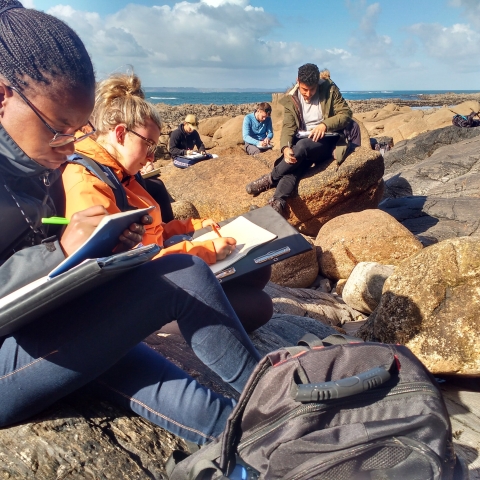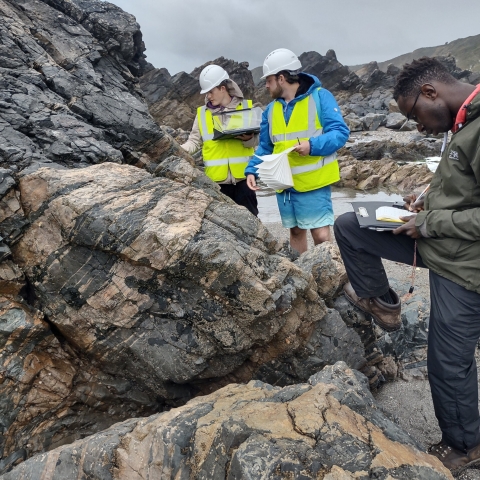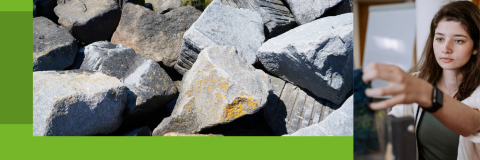
This career guide is designed to help University of Portsmouth students and recent graduates explore job options, key employers, and entry routes into the geology sector. Many geology graduates enter professions directly related to their degree. However as a geology student, your experience in undertaking field and laboratory investigations combined with your team working, communication and analytical skills make you an attractive prospect for many employers.
Different sectors with the geological field include:
- Mining & Quarry
- Energy
- Engineering Geology
- Environmental Geology
- Water and Contaminated Land
- Natural Hazards/Risk Management
Explore the Geology Career Guide
Getting started in geology
Take the first steps to researching a career with a geology degree.

Gaining experience in geology
Find out how to gain work experience in the industry during your studies.

Finding a job in geology
Explore different ways you can secure employment after your studies.

Enable University alerts
Turn on notifications for critical updates like closures, safety alerts, and urgent service disruptions.






